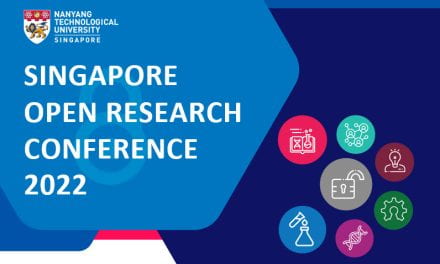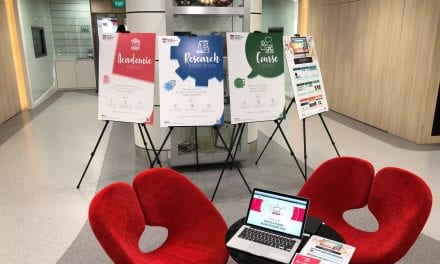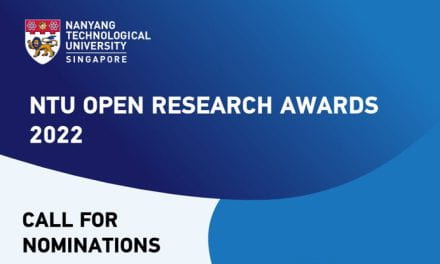Every year NTU Library commemorates International Open Access Week. This year, due to COVID-19, the commemoration had gone online. As a result of the webinar series going online, we were very happy to have guest speakers from the United States and Australia, and participants from Singapore as well as many other countries including Indonesia, Kazakhstan, Japan, Korea, Taiwan, Malaysia etc.
The second webinar, entitled Open Scholarship, was held on 22 Oct 2020 from 9am to 10.30am. It started with opening remarks by Ms Goh Su Nee who is the Deputy Director & Lead of the Research Data Management Team in NTU Library. She introduced the interoperability of the terms such as open scholarship, open science, and open research, and shared about how publishers’ open access policies have become more and more complex. For example, Sherpa Romeo no longer codes the different types of open publishing models they indexed as gold, green, bronze, hybrid because the colours no longer give a clear overview.
The first guest speaker was Mr Nick Shockey, the Director of Programs and Engagement from the Scholarly Publishing and Academic Resources Coalition (SPARC), a well-known veteran in the area of open access. Nick started by giving the participants a broad view of the open access policies across many regions and countries, established by public and private research funders, research performing institutions, governments, organizations, or publishers. The shift toward a system of research and scholarship that is open by default is well underway. Then he emphasized the importance of equity to the new open-by-default research system. There are needs for open, community-owned, community-governed information infrastructure, where community values, equity and inclusion could be maximized. He highlighted that libraries’ role in Open Science is essential. Nick ended his speech with a question from the media: will the coronavirus kill off the ‘dinosaur’ world of academic publishing? This question caused ripples of thoughts from the audience.
The second invited speaker was Dr Sandersan (Sandy) Onie who is a promising researcher at the Black Dog Institute in the field of suicide prevention and mental health. Sandy shared that while open scholarship has been highlighted in many mature research cultures, it is a mammoth task to develop open scholarship and open science in developing culture. He proposed that 5 areas need to be worked on to build open science in Asia, Africa and Latin America, and they are:
- Set appropriate national polices
- Retool universities for research
- Train researchers (undergraduates) for open science
- Make space for developed research cultures
- Reflect and adapt so as to avoid detrimental practices being ingrained.
These well-grounded observations and suggestions on open scholarship sparked interests and questions from the audience. Both guest speakers had described the challenging but hopeful landscape of Open Science from different perspectives. Together, they have delineated for us a full picture of Open Scholarship. The webinar ended with a brief introduction of the NTU and NIE Digital Repositories by our librarians Mr David Tan and Ms Wong Shu Min.
 Presentation slides:
Presentation slides:
The Future of Open Research: Policies, Platforms, and Priorities
Building Open Scholarship in Developing Research Cultures





